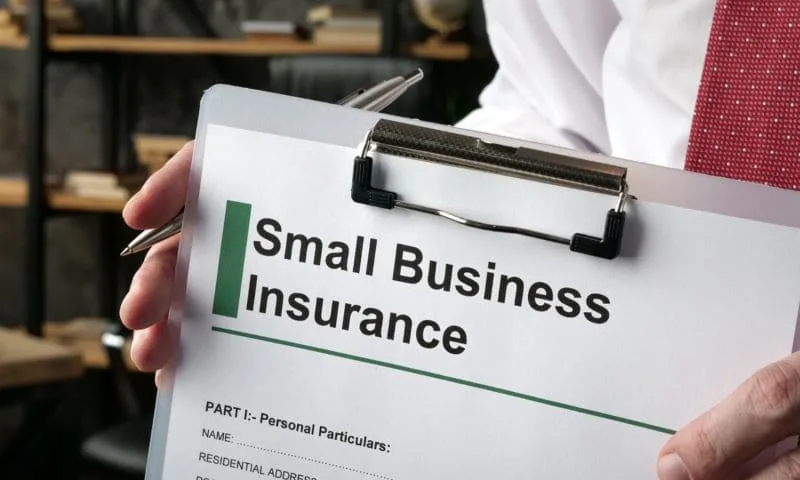
Introduction to Small Business Insurance
For small business owners, navigating the world of insurance can be daunting, yet it’s a critical component of safeguarding your enterprise. Insurance acts as a safety net, protecting the business you’ve worked so hard to build from unforeseen financial distress. In this post, we’ll explore a variety of insurance types tailored to small businesses, each serving a unique purpose, from mitigating liability risks to ensuring the well-being of employees. Understanding these options is the first step towards creating a robust risk management strategy.
Understanding Business Owner Policies (BOP)
A Business Owner Policy (BOP) is often the backbone of a small business’s insurance plan. This packaged policy combines various insurance coverages that most businesses need into one convenient bundle, typically including property insurance, general liability insurance, and business interruption insurance. It’s designed to provide broad protection against the most common risks faced by small businesses, such as property damage, legal liabilities, and loss of income due to business closure. Customization options allow business owners to tailor their BOP to fit their specific needs, making it a foundational piece of their insurance portfolio.
Workmen’s Compensation Insurance
Workers’ compensation insurance is a mandatory policy for businesses in most states, designed to protect employees who get injured or sick from work-related causes. This insurance provides employees with wage replacement and medical benefits and, in return, employees relinquish the right to sue their employer for negligence. It’s a crucial policy that fosters a supportive work environment, ensuring employees are taken care of, and business owners are shielded from legal complications that could arise from workplace accidents.
Health Insurance Options for Small Businesses
Offering health insurance can significantly enhance a small business’s ability to attract and retain talented employees. Beyond a moral imperative, it’s a strategic business decision. Employers have various plan options, including traditional group health insurance, health reimbursement arrangements (HRAs), and association health plans. Each comes with its own set of advantages, tax incentives, and regulations. Investing in your employees’ health can lead to higher productivity, reduced absenteeism, and a more engaged workforce. Furthermore, small businesses can often qualify for tax credits, easing the financial burden of providing health benefits.
General Liability Insurance
General Liability Insurance is a fundamental safeguard for businesses, designed to protect against various claims including bodily injury, property damage, and personal injury that can arise from business operations. Whether a customer slips on a wet floor within your premises or a defective product causes harm, this insurance can cover legal fees, medical expenses, and damages for which your business is found liable. This coverage is essential for businesses of all sizes as it provides a financial shield against common mishaps that could otherwise result in significant out-of-pocket expenses.
Commercial Auto Insurance
For businesses that involve the transportation of goods, services, or employees, Commercial Auto Insurance is vital. It covers vehicles owned by the business against damage and accidents, as well as the liability for bodily injury or property damage to others. Why is this important? A personal auto policy won’t cover vehicles used for business purposes, and an accident involving a business vehicle can lead to substantial financial loss, far exceeding the limits of personal auto insurance. This type of insurance ensures that your business can continue to operate smoothly even in the event of an auto-related claim.
Professional Liability Insurance
Also known as Errors and Omissions (E&O) Insurance, Professional Liability Insurance is tailored for professionals who provide advice or services. It protects against claims of negligence, misrepresentation, or faulty advice. This type of insurance is crucial for consultants, accountants, lawyers, and healthcare providers, among others. The key difference between this and General Liability Insurance lies in the nature of protection: while General Liability covers physical risks, Professional Liability addresses financial loss as a result of professional services or advice. In today’s litigious society, Professional Liability Insurance provides an essential layer of security for service-based businesses.

Property Insurance
Commercial Property Insurance is designed to protect a business’s physical assets from fire, explosions, burst pipes, storms, theft, and vandalism. Unlike personal property insurance which covers residential properties and personal belongings, commercial property insurance is tailored to the needs of businesses. It covers the business’s building, equipment, inventory, furniture, and other physical assets. This coverage is not only critical for retail stores with large amounts of inventory but also for service-oriented businesses that rely on specialized equipment to operate.
Business Interruption Insurance
Business Interruption Insurance, also known as Business Income Insurance, provides support when unexpected events cause a halt in business operations. If a fire or natural disaster damages your place of business, this insurance can cover lost income and help pay for ongoing expenses like rent and payroll while the business is not operational. This ensures that a business can maintain financial stability and recover without the added pressure of lost income.
Cyber Liability Insurance
In an age where businesses increasingly rely on digital platforms, Cyber Liability Insurance has become essential. It protects businesses from losses due to cyber incidents like data breaches, network damage, and theft of sensitive customer information. This insurance can cover a range of expenses, including notification costs, credit monitoring services, and legal fees. As cyber threats grow in sophistication, having cyber liability coverage can be a key factor in a business’s resilience and continuity.
Directors and Officers Insurance
Directors and Officers (D&O) Insurance shields a company’s executives from personal losses if they are sued as a result of serving on a company’s board or as an officer. It can cover legal fees, settlements, and other costs. This insurance is crucial as it not only protects the personal assets of a company’s leaders but also ensures the company’s ability to attract and retain high-caliber executives who might not be willing to risk personal liability otherwise.
How to Choose the Right Insurance
Selecting the right insurance coverage is a critical decision for small business owners. To assess risks effectively, begin by evaluating the nature of your business, the industry in which you operate, and the specific challenges you may face. Consider the following steps:
- Risk Assessment: Identify the assets most crucial to your business operations and the risks that could impact them. This could range from liability risks to property damage.
- Expert Consultation: Speak with an insurance broker or agent who specializes in commercial policies. Their expertise can guide you to the right coverage for your unique business needs.
- Shop Around: Obtain quotes from multiple insurers to compare coverage and rates. Pay attention to the details of each policy, not just the price.
- Read the Fine Print: Understand the inclusions, exclusions, and the claims process for each policy. It’s crucial to know what is covered and what is not.
Cost Management
Insurance is an investment in your business’s future security. To manage costs effectively while maintaining adequate coverage:
- Bundle Policies: Often, purchasing a package policy like a BOP can be more cost-effective than buying individual coverages separately.
- Review Annually: As your business grows and changes, so do your insurance needs. Annual reviews can ensure you are not over-insured or underinsured.
- Increase Deductibles: Opting for a higher deductible can lower your premiums. Ensure that the deductible is affordable and that you have sufficient cash flow to cover it if needed.
- Implement Safety Measures: Many insurers offer discounts for businesses with safety programs, as this reduces the likelihood of filing a claim.
Common Mistakes to Avoid
The world of commercial insurance is complex, and missteps can be costly. Be wary of:
- Underinsuring: Saving on premiums by underinsuring can backfire if a claim exceeds your coverage limits.
- Ignoring Exclusions: Not all policies are created equal. Be aware of what each policy does not cover.
- Overlooking Policy Updates: As your business evolves, so should your insurance. Failing to update your policy can leave significant gaps in coverage.
Conclusion
Each type of insurance plays a pivotal role in protecting different facets of your business. From guarding against liability claims to ensuring business continuity after an interruption, the right insurance coverage is an indispensable part of your business’s defense strategy. Regular evaluations of your current policies are crucial to ensure they align with your business’s changing landscape. Remember, the goal is not to find the cheapest coverage, but rather the most appropriate coverage for your business’s unique risk profile. By staying informed and proactive, you can navigate the complexities of commercial insurance and secure the future of your business.
